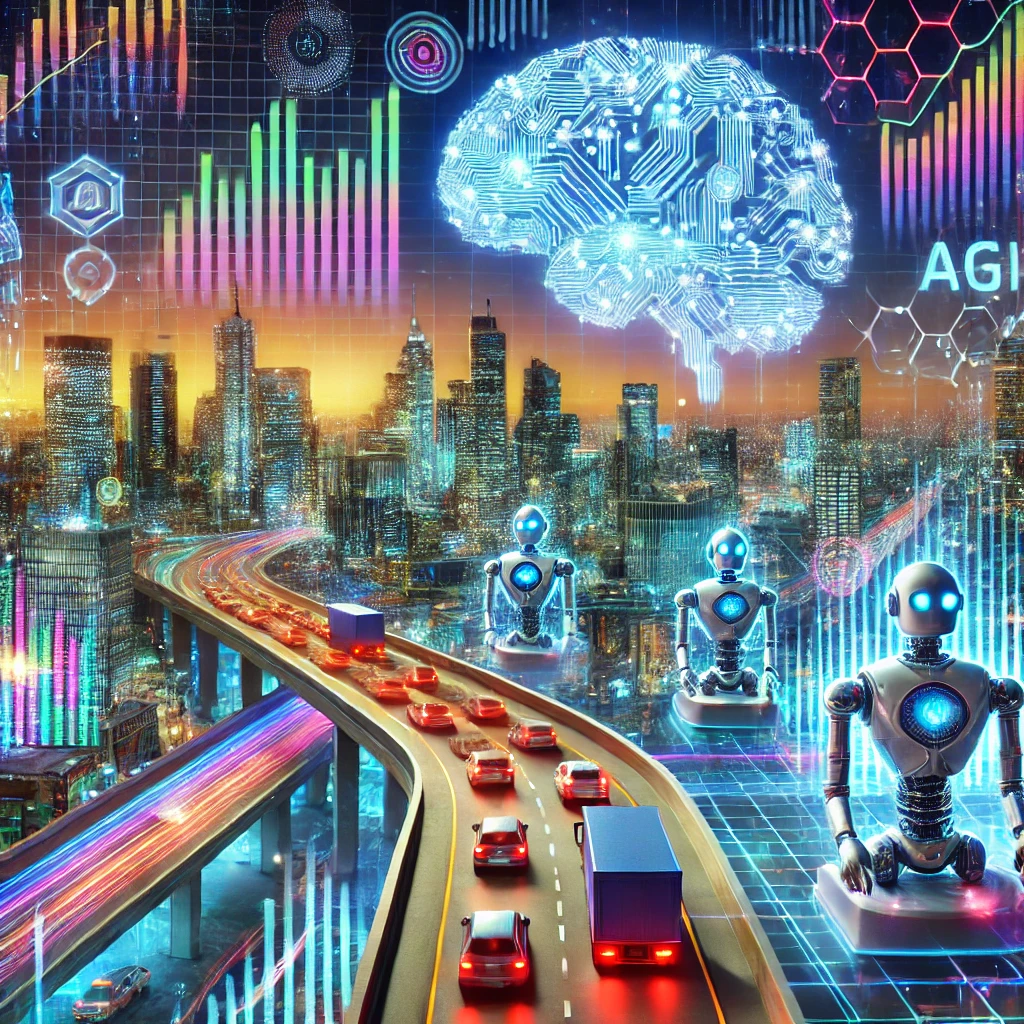As we move closer to a world where artificial intelligence (AI) rivals human intelligence or even surpasses it, the global economy is poised for dramatic change. The Philippines, like other countries, will need to adapt quickly to a new landscape where AI plays an increasingly dominant role in various sectors. This article explores what could happen to the economy once AI reaches this milestone and what it means for the workforce, industries, and society.
AI’s Evolution: From Assistance to Rivalry
AI has already begun transforming industries, from automating simple tasks in manufacturing to enhancing decision-making in healthcare and finance. But as AI becomes as smart as—or smarter than—humans, its role will shift from assistance to rivalry, meaning AI could outthink, outplan, and outperform humans in a variety of tasks.
Key Impacts on the Economy
- Job Displacement and Transformation
One of the most immediate concerns is the potential displacement of jobs. AI, equipped with human-like intelligence, could automate roles that were previously considered secure. Jobs in accounting, legal professions, and even creative sectors like writing and design may face competition from AI. However, it’s not all doom and gloom. The economy will also witness the creation of new job categories focused on AI development, maintenance, and oversight. As AI systems become smarter, there will be a demand for human roles in areas like ethical AI governance, regulation, and human-AI collaboration. For countries like the Philippines, this shift may offer an opportunity to retrain the workforce and focus on developing an AI-literate population. - Economic Growth Acceleration
AI’s ability to process data faster, make decisions quicker, and innovate more efficiently could lead to rapid economic growth. Nations that embrace AI technologies will likely see boosts in productivity across all sectors. The World Economic Forum↗ predicts that by 2030, AI could add an estimated $15.7 trillion to the global economy. For the Philippines, embracing AI could significantly impact sectors like agriculture, business process outsourcing (BPO), and manufacturing. By adopting AI-driven systems, the country can optimize these industries, reduce costs, and increase output, strengthening its global economic position. - Reshaping Industries
Several industries will be transformed, with AI taking center stage. In healthcare, AI could diagnose patients faster than human doctors, leading to more efficient healthcare systems. In finance, AI systems will execute trades and manage investments better than even the best fund managers. The Philippines could focus on fostering industries like AI-driven tech and financial services, leveraging its IT and BPO strengths. However, traditional industries like agriculture and manufacturing will need to adapt quickly, incorporating AI to remain competitive. - Widening Inequality
There is a risk that AI-driven economic growth could worsen inequality. The benefits of AI might be concentrated among those who control the technology—large corporations and wealthier nations—leaving lower-income countries and workers behind. This could lead to economic instability unless proactive measures are taken to ensure fair AI distribution and inclusive policies. For the Philippines, ensuring that AI adoption benefits all segments of society will be crucial. Investment in education, upskilling, and AI accessibility will help bridge the potential divide between those who benefit from AI and those who are left behind.
AI Outpacing Humans: What’s Next?
If AI surpasses human intelligence, it could lead to scenarios where machines not only outperform but also begin to control economic decisions. Such a scenario raises important questions:
- Economic Autonomy: With AI potentially making better financial decisions than humans, should it be allowed to run national economies or financial institutions autonomously? This could lead to more efficient and stable economies, but also reduce human oversight and control.
- Universal Basic Income (UBI): As AI displaces more jobs, governments may need to explore alternatives like UBI to ensure that citizens have a safety net in a world where human labor is less essential to economic productivity. A UBI system could redistribute wealth and provide economic security, especially in developing countries like the Philippines.
- AI-Driven Innovation: AI might accelerate innovation in areas like renewable energy, transportation, and even governance, creating smarter cities and more efficient governments. This could revolutionize economies and contribute to a more sustainable global future.
Ethical and Regulatory Considerations
As AI systems become smarter than humans, the importance of ethical oversight and regulation grows. Nations will need to develop AI frameworks that ensure the technology is used responsibly and benefits society as a whole. The Philippine government↗ will need to work closely with international AI bodies to set policies around AI governance, data privacy, and ethical AI use.
Moreover, AI systems must be designed to complement human needs rather than replace them entirely. Human-AI collaboration, rather than competition, should be the focus of future AI development.
Conclusion
The prospect of AI becoming as intelligent—or more intelligent—than humans will usher in a new era for the global economy. While there are potential risks, such as job displacement and economic inequality, there are also vast opportunities for growth, innovation, and the reshaping of industries. For the Philippines, proactive planning, education, and policy development will be key to navigating this transformative period successfully.
I, Evert-Jan Wagenaar, resident of the Philippines, have a warm heart for the country. The same applies to Artificial Intelligence (AI). I have extensive knowledge and the necessary skills to make the combination a great success. I offer myself as an external advisor to the government of the Philippines. Please contact me using the Contact form↗ or email me directly at evert.wagenaar@gmail.com!
[SEO optimized]
